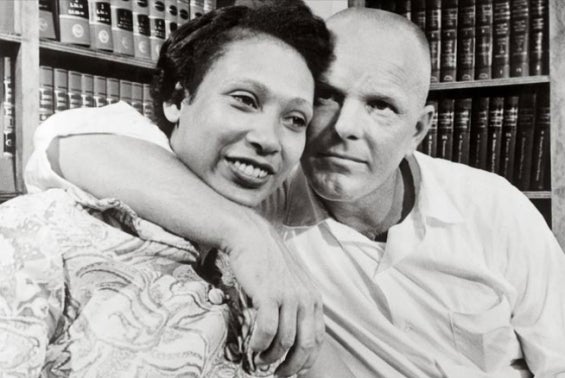Headline News
From the Wedding Chapel to the Courthouse: The Lovings Win Racial Justice

The contributions of black members to the success of the Teamsters Union are numerous, varied and as old as the union itself. This month, the Teamsters Union spotlights some of those contributions and other important events in civil rights history.
The movie Loving, released in the Fall of 2016, is based on the real-life story of Virginians Richard Loving, a white man, and Mildred Jeter, a black and Native American woman, who sought to marry. Richard, a bricklayer by trade, knew that interracial marriage in Virginia was illegal so he and Mildred drove to Washington, D.C. and married in June 1958.
The Lovings returned to Virginia and settled in Caroline County without realizing just how opposed state officials would be to the marriage. Five weeks after the wedding, three officials from the Caroline County Sheriff’s Office entered their bedroom as they slept and shined a flashlight in their faces. The couple was arrested for violating the marriage ban and in January 1959, the Circuit Court of Caroline County ruled the marriage invalid.
Shocked and fearful of the situation, the couple accepted a ban on living in Virginia to avoid jail sentences. They moved to Washington where they would spend the next five years raising three children. While interracial marriage was legal in Washington, they still had to endure being hounded by racist police officers, harassed by members of the community and even shunned by some family members. They remained quietly dignified and stoic through it all.
They always hoped to return to Virginia to once again be near family and friends in the country where their children could run and play. The Lovings eventually decided to appeal the Circuit Court’s decision and spent years trying to move the case through the state and federal court systems.
After the Virginia Supreme Court responded with antiquated and racist sentiments, the couple’s attorneys seized the opportunity to take the case to the U.S. Supreme Court in 1967. On June 12 of that year, Chief Justice Earl Warren issued the unanimous Court’s opinion that declared Virginia’s anti-miscegenation laws unconstitutional. The opinion also overturned sixteen other states’ interracial marriage laws.
The couple cherished their victory until tragedy stuck in 1975 when Richard Loving was killed by a drunk driver. Mildred never remarried and lived near family in Virginia until her death in 2008.
The Lovings never sought to be the center of attention – they just wanted to live their lives together, as a family, in a place of their own choosing. Theirs is a story of love triumphant against intolerance.